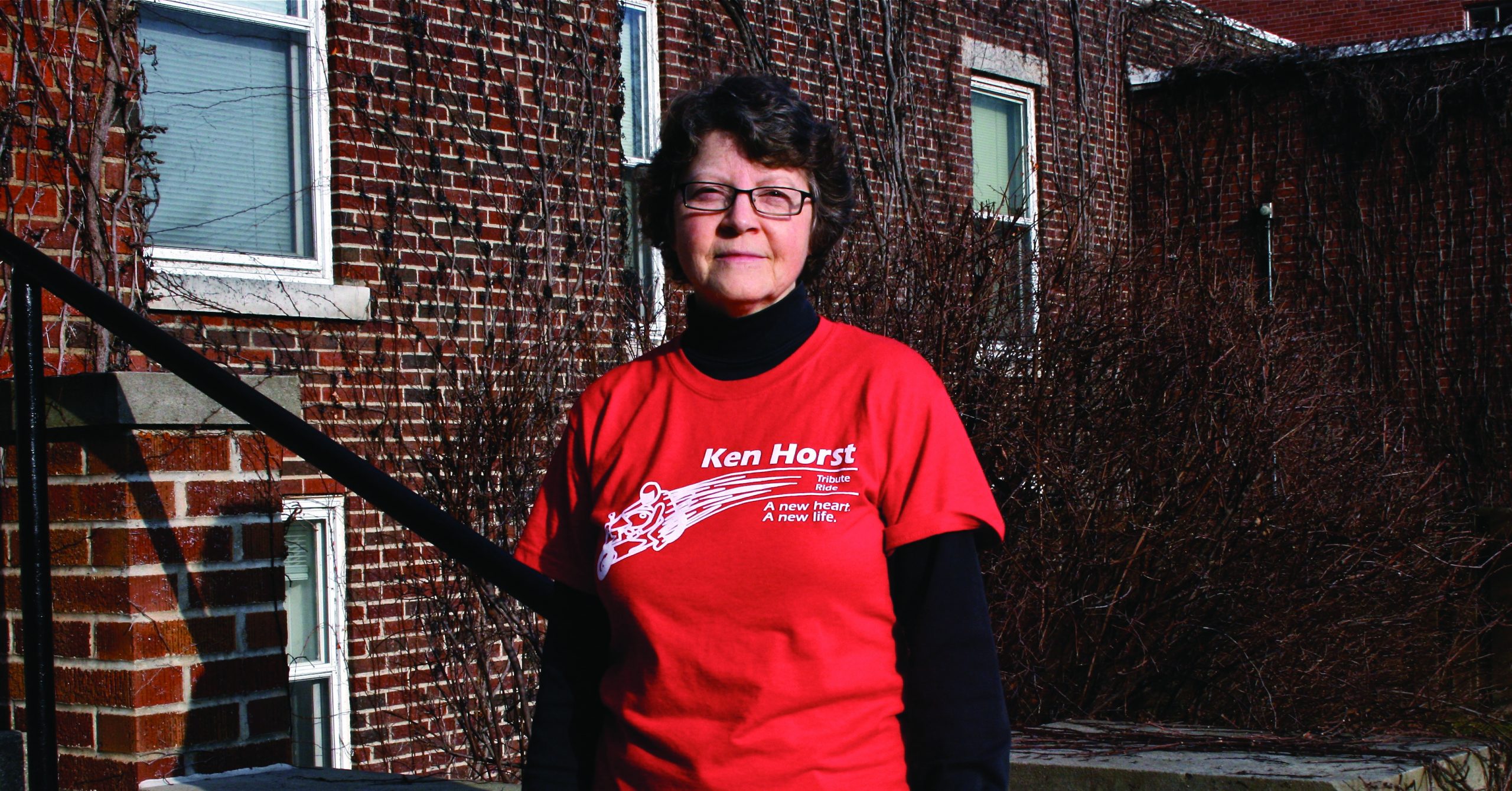Dr. Pizlo looked me in the eye. “We got the biopsy results this morning,” she said. “It is giant cell myocarditis. This is a very rare and serious diagnosis. Your husband’s heart will not get better. His only hope for survival is a heart transplant.”
In six short weeks last spring, my husband Ken went from bounding two steps at a time up to his third floor physics classroom at Goshen High School to total heart failure. From playing Bill Born and John Lapp in racquetball twice a week to facing death.Last summer was a surreal journey of ambulance calls, brushes with death and medical miracles. We got a crash course in rare autoimmune heart diseases and another crash course in God’s surprising provision.
Sometimes it seemed like we were in a reality show called “Heart Transplant.” Each day brought plot twists, suspense, interesting characters and unexpected gifts.
One of the interesting characters: a brilliant neurologist from Argentina who dealt with Ken’s neurological complications, a mild stroke and neuropathy in his left leg. He punctuated every sentence with “my friend” and taught us how to say his name correctly: “You must not put an ‘s’ at the end. With an ‘s’, it is a Greek name; I am not Greek.”
One of the unexpected gifts: Within minutes after arriving at Methodist Hospital in Indianapolis for Ken’s first consultation, we met a young woman who grew up in our church here in Goshen. She works for a retirement community and just happened to be visiting a client in the hospital that day. She gave me her card and told me to call if I ever needed a place to stay. Her retirement community had a housing unit that they made available to employees’ friends who needed temporary lodging. I thanked her politely and put the card away.
To our surprise, Ken was admitted to the hospital for a biopsy immediately after his consultation that day. The next morning I returned to Indianapolis with a suitcase and heard the biopsy report from Dr. Pizlo. Ken’s heart was now in complete failure and his organs were shutting down. They rushed him to surgery to install two ventricular assist devices to pump his blood until a transplant was possible.
Our three children and spouses came from Chicago, Goshen and Pennsylvania to be with us. It was Memorial Day weekend. Indy 500 race weekend. No hotel rooms were available in the whole city of Indianapolis. I pulled out that business card and called Jenni, who not only gave us the key to a condo in her retirement community but also put pizza and salad in the refrigerator for our supper.
Crisis often comes swiftly— an “F” on a test, a torn ACL, a friend’s betrayal, an arrest for underage drinking, a cancer diagnosis, a traffic accident, a murder. When crisis descends, we go into survival mode. We grasp for handholds to navigate the wrenching pain, the buckling path that once was our future.
What were the handholds I found during Ken’s three months in the hospital last summer?
Nature. The courtyards at Methodist Hospital. The Lily gardens around the art museum. The sky during my commute to and from the hospital each morning and evening.
Journaling. Daily entries in our Caringbridge blog were a place to process and summarize the ups and downs of the journey. Guestbook postings from hundreds of readers buoyed our spirits.
Music. Classical music spread a healing aura in Ken’s room. Hymns came to me to sing each night before leaving: “Don’t Be Afraid,” “Peace Before Us,” “Healer of Our Every Ill,” “My Life Flows On.”
Prayer. Gratitude: naming our thanks each day. Psalms of praise and lament. Celtic Christian prayers. Mindfulness from the Buddhist tradition.
The people of God. Old friends from First Mennonite Church in Indianapolis who hosted me in their spare bedroom for two months. Our congregation, College Mennonite Church, which prayed for us every Sunday and supported us in many other ways. Generous family members and work colleagues. Caring nurses and doctors. Dozens of visitors, hundreds of cards, even a motorcycle tribute ride.
These handholds that I grasped are within your reach as well: nature, journaling, music, prayer and the people of God. Or perhaps you will reach for Scripture, art, animals, exercise or working with your hands. When you are in a crisis, grasping for survival, these handholds can support you as you navigate the buckling path to your new future.
Becky Horst is an Associate Registrar and the Convocation Coordinator



